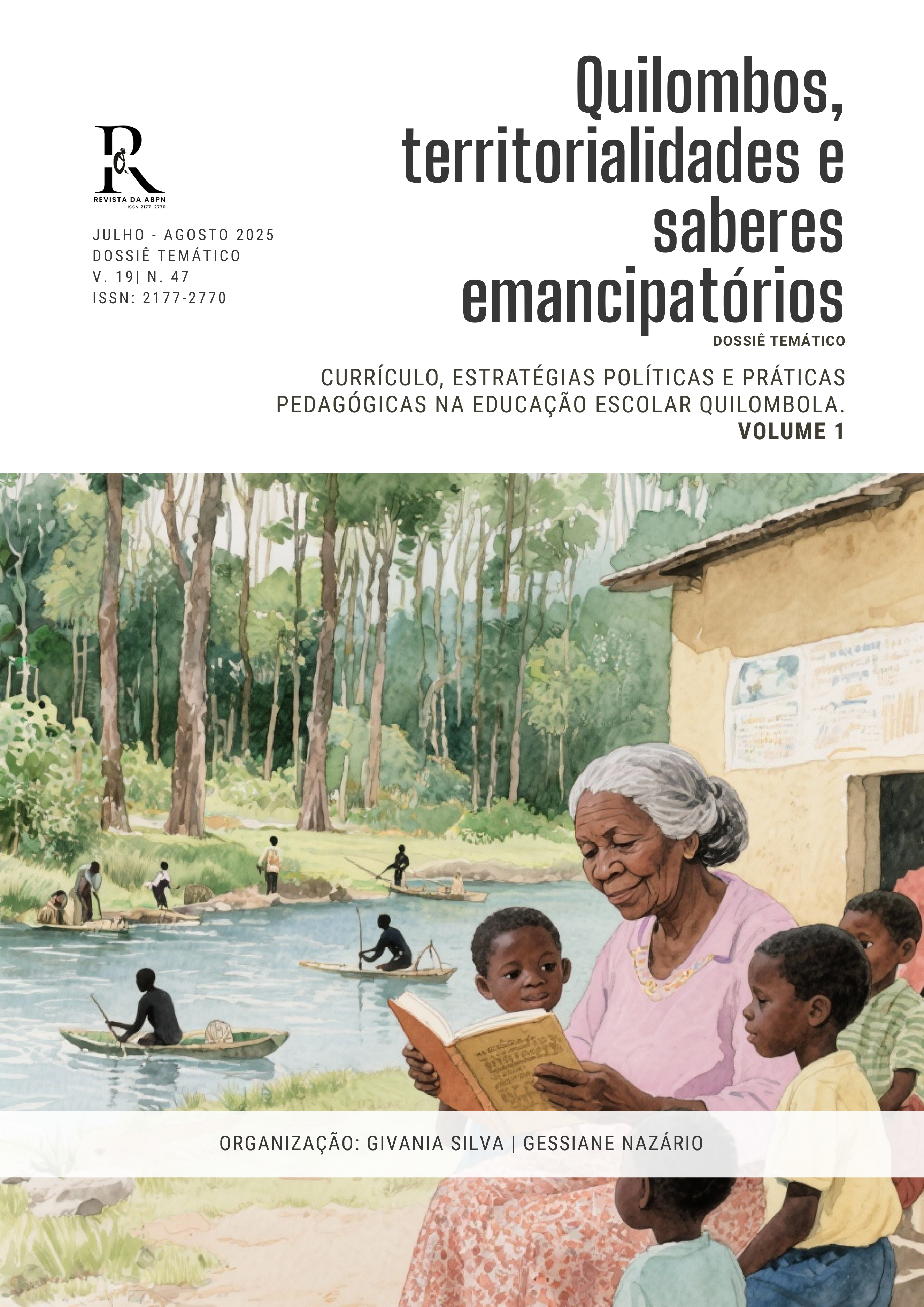CONTINUING TEACHER TRAINING FOR QUILOMBOLA SCHOOL EDUCATION AN EXPERIENCE REPORT IN MARANHÃO COMMUNITIES
Main Article Content
Abstract
Aiming at reflecting on the teacher training in quilombola school education, this text describes the experience of the “Curso de Aperfeiçoamento em Políticas e Práticas de Educação Escolar Quilombola”. The course proposal is reported, as well as its execution, considering its challenges and advances, based on the legal framework of quilombola school education and the understanding of the need for its own pedagogy, which respects the specificities of the different territories and the people who live there . The course was developed in schools in the Regional Education Unit of Itapecuru-Mirim, comprehending 05 (five) Quilombola School Education Centers that were located in: Itapecuru-Mirim (MA), Anajatuba (MA) and Vargem Grande (MA). The impressions based on this experience confirm the lack of training for professionals who work in this scenario and reinforce the need of implementing collaboration regimes among federative entities and universities, as well as the insertion of the quilombola movement as a protagonist and mediator in the implementation of teacher training.
Article Details

This work is licensed under a Creative Commons Attribution 4.0 International License.
Copyright Statement
- Authors retain copyright and grant the journal the right of first publication, with work simultaneously licensed under the Creative Commons Attribution License CC-BY 4.0 which allows the sharing of the work with acknowledgment of the authorship of the work and initial publication in this journal.
- Authors are authorized to enter into additional contracts separately for non-exclusive distribution of the version of the work published in this journal (eg, publishing in institutional repository or book chapter), with acknowledgment of authorship and initial publication in this journal.
- Authors are allowed and encouraged to post and distribute their work online (eg in institutional repositories or on their personal page) at any point before or during the editorial process, as this may lead to productive changes as well as increase impact and citation of published work (See The Effect of Free Access).

